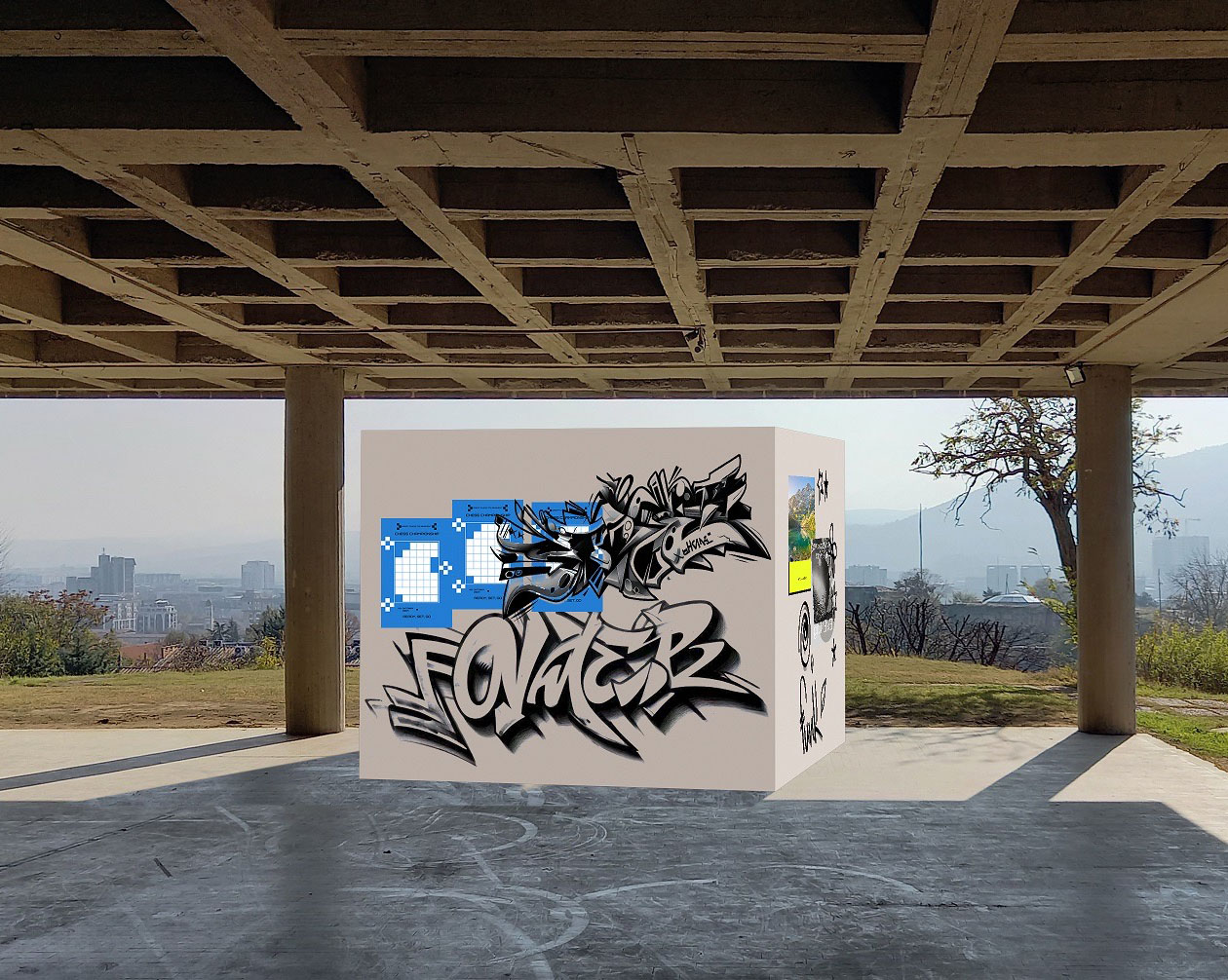19/12/2024 at 12:00 PM, Public space: the MoCA-Skopje porch

Curated by Zoran Erić
Panel discussion:
About the project
“Why the hell does everybody want to succeed?I’d like to meet somebody who wanted to fail. That’s the only sublime thing.”—John Dos Passos, Manhattan Transfer, 1925
The transnational project if walls could tell, by artist Mischa Kuball, questions art institutions with regard to their permeability to broader social groups within a community. Three symbolic museum walls will be installed in public spaces in various cities across Southeastern Europe, where they will act as an accessible and temporary stage for local inhabitants. Like a filter, these walls will collect all “traces” of cultural and urban expressions amid people’s urban lives, away from the cultural institutions to which they refer. Once marked by the environment and the people, the stage then returns to its institutional context; securing the traces left behind or for further inscription.
With the story of Dos Passos resonating in the background, the analog museum_transfer—the transitory, almost dystopian change of place with its many inscriptions—concentrates on the traces left behind on the walls, seen as a temporary space for the open and limitless expression of citizens in a participatory artistic project within public space. if walls could tell poses current social questions: Can civil society live without museums, and does this dissolve or break the cultural promise to future generations? What are the interactions between society, museums, citizens, artists, and curators?
Acting as a catalyst in this context, Mischa Kuball opens up the space to all citizens, who in turn become direct content producers, participants, and co-authors in the production of a collaborative artwork. They are thus regarded as political subjects who should be able to appropriate all available instruments that turn them into active users and not passive consumers, raising the question: What happens when citizens, potential museum public, and artists get “freedom of expression” in public space, uncommon to museum exhibition politics and practice?
Once the walls are returned to the museum, an important aspect of the project includes orchestrating a public debate with artists, art historians, theorists, and curators, among others. The discussion will be based on the previously observed social issues and problems in each of the local contexts and inspired by the interventions, statements, and imprints left behind on the walls. The context specific discursive programs will be developed together with partner institutions and with speakers well acquainted with local socio-political and art contexts.
The Museum of Contemporary Art in Skopje is the final venue this year, following the launch of the project in Sarajevo and Bucharest this summer. The process will be replicated in 2025 at all partner cities/venues: Chișinău, Kraljevica, Ljubljana, Bihać, Čačak, and Cetinje. In each of the partner cities, after being installed in public spaces, the walls will be returned to the museum or gallery, where panel discussions will be held to explore the impact of participatory art in public space within each specific context. The project will end at the WELTKUNSTZIMMER in Düsseldorf, where the final discussion with all partners will take place.
Curator: Zoran Erić
Institute for Philosophy and Social Theory, Belgrade
About the artistConceptual artist Mischa Kuball has been working in the public and institutional sphere since 1977. From 2007 onwards Kuball has been a professor of public art at the Academy of Media Arts, Cologne, and from 2006 to 2008 professor of media art at Hochschule für Gestaltung/ZKM, Karlsruhe. Since 2015 he has been a member of the North Rhine-Westphalian Academy of Sciences, Humanities and the Arts, Düsseldorf. In 2016 he was honored with the German Light Award. Since the spring of 2024, he has been an associate member of the Cluster of Excellence ‘Matters of Activity. Image Space Material’ at the Humboldt-Universität zu Berlin.
Two-way alley – Melting down the museum fortification
(Panel discussion) MoCA-Skopje 21/12/2024 8pm
Skopje is widely recognized as a “city of monuments,” yet it lacks adequate public spaces for civic engagement. A decade after the launch of the “Skopje 2014” project, this raises a critical question: What is the potential role of participatory art in public spaces designed to engage citizens?
In this context, the Museum of Contemporary Art, positioned like an “island” or fort, continues to focus on cutting-edge regional and international programs and exhibitions. The central question for this panel discussion is: How can participatory public art catalyze debates that symbolically mark the beginning of the process of creating a “monument” (Jochen Gerz)? Furthermore, how might this form of artistic practice be perceived in a city saturated with “bronze sculptures” that reinforce a mythology-based narrative, rather than reflecting the social realities of an ethnically divided city and country?
Speakers:
Sofia Grigoriadou, visual artist & social anthropologist, PhD
Vladimir Janchevski, curator, Museum of Contemporary Art, Skopje
Slobodanka Stevceska, MA visual artist – OPA (Obsessive Possessive Aggression), and Faculty of FineArts, ‘SS. Cyril and Methodius’ University in Skopje
Prof. Nebojsa Vilic, art historian, Faculty of Dramatic Arts, ‘SS. Cyril and Methodius’ University in Skopje
Moderator: Zoran Eric, curator, PhD
SupportThe project is organized in cooperation with the Goethe Institute network in all
respective partner countries and supported by Bundeszentrale für politische Bildung bpb and Kunststiftung NRW.
All partners:
Ars Aevi Museum of Contemporary Art, Sarajevo
The National Museum of the Romanian Peasant, Bucharest
Museum of Contemporary Art, Skopje
Center for Contemporary Art, KSA:K & PLAI Gallery, Chișinău
RIZOM [ K ] – Frankopan Castle, Kraljevica
Art Gallery “Nadežda Petrović”, Čačak
MGML – Vžigalica Gallery, Ljubljana
Center for Contemporary Culture KRAK, Bihać
Faculty of Fine Arts Cetinje, University of Montenegro
Weltkunstzimmer, Düsseldorf